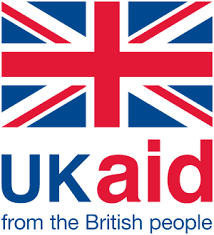Community / Land projects / Raizing Voices Project - Strengthenign capacities of religious leaders to defend communities rights
Raizing Voices Project - Strengthenign capacities of religious leaders to defend communities rights

€0
11/13 - 10/14
Завершено
This project is part of
Implementing Organisations
Donors
Data Providers
General
Mozambique is amongst the world ten powerest countries, with a population estimated around 23 millio millions of whom over 54% leave under the poverty line and 70% in rural areas, where the development process runs at a very low speed . The country is reach in mineral resources as many prospection studies revealed and, that lead the government prioritize the growth of the economy sustained by minerals accelerated exploration. Although the country has not an internally established capacity to develop projects of minerals. This lead the Government of Mozambique to approve legislation that facilitate external investors in the mining industry. For effect special economic trade zones such as Moma, Moatize Nacala and others, were established. The quality of minerals found in Mozambique grounds, associated with easy access to labour force, easing taxing legislation and inexperience of the government in negotiating minerals exploration contracts attracted big multi-national companies such as Vale do Rio Doce, Riversdale Mining, Rio Tinto, Jindal, ERNC, ANADARCO, SASOL among others. Although the country is experiencing a continuous economic growth with much better projections for the future, resulting from development of the mining industry, there are negative impacts from the activity in Mozambique poor population’s economy, cultural, environment and other social sphere. There are several examples in Tete, of communities who have been resettled in new living areas due to mining projects, although basic resettlement conditions, including promises made to communities were not observed. Priority given by the Government of Mozambique and the province of Tete has been also resulting in relegation of poor communities’ priorities (such as agriculture, food security, employment, shelter, transport and health) to third plans. Most charcoal mining projects are implementing on open sky process, producing huge amount of dust that affects communities crop production, water and health. The run for minerals extraction industry other mega-projects had been taken for granted, in a luck of necessary knowledge and preparation for the Mozambique Government and, on the other hand the reality of clientelist and patrimonial state. Contracts for most, if not all projects have been signed without observing some basic legal principals to ensure a fear bit, on benefit of the poorest and directly affected populations. For instance most of these projects are not being properly taxed and there are no clearly defined corporate social responsibility rules that would ensure an inclusive development (identified to be the main aim in poverty reduction in the country). Socially, it is verifiable widespread discontent of the people, land conflicts, production in less fertile areas with reduced production volumes and yields, reduced access to markets and business opportunities, more difficulties in transportation and communications and worst living conditions. FBO, the Interfaith Platform for Transparency and Good Governance, proposes this project precisely as a contribution to meet the challenges in the current context of communities affected by mining projects in Mozambique and in the province of Tete prominently. Religious institutions in Mozambique enjoy a potential strong influence on the common people and as well as the effect of the first, in the organs of the state. That this potential should be very well used in the project.


